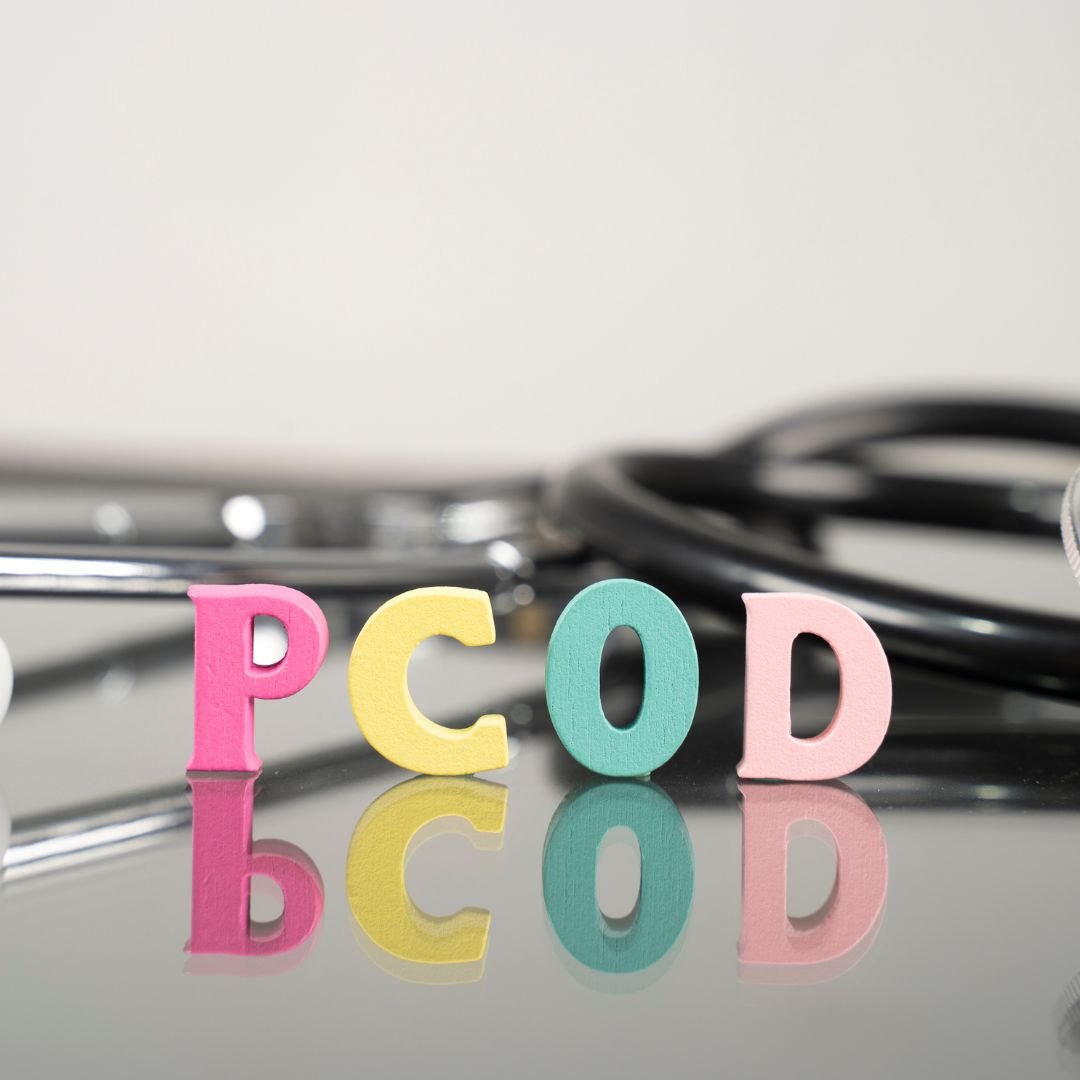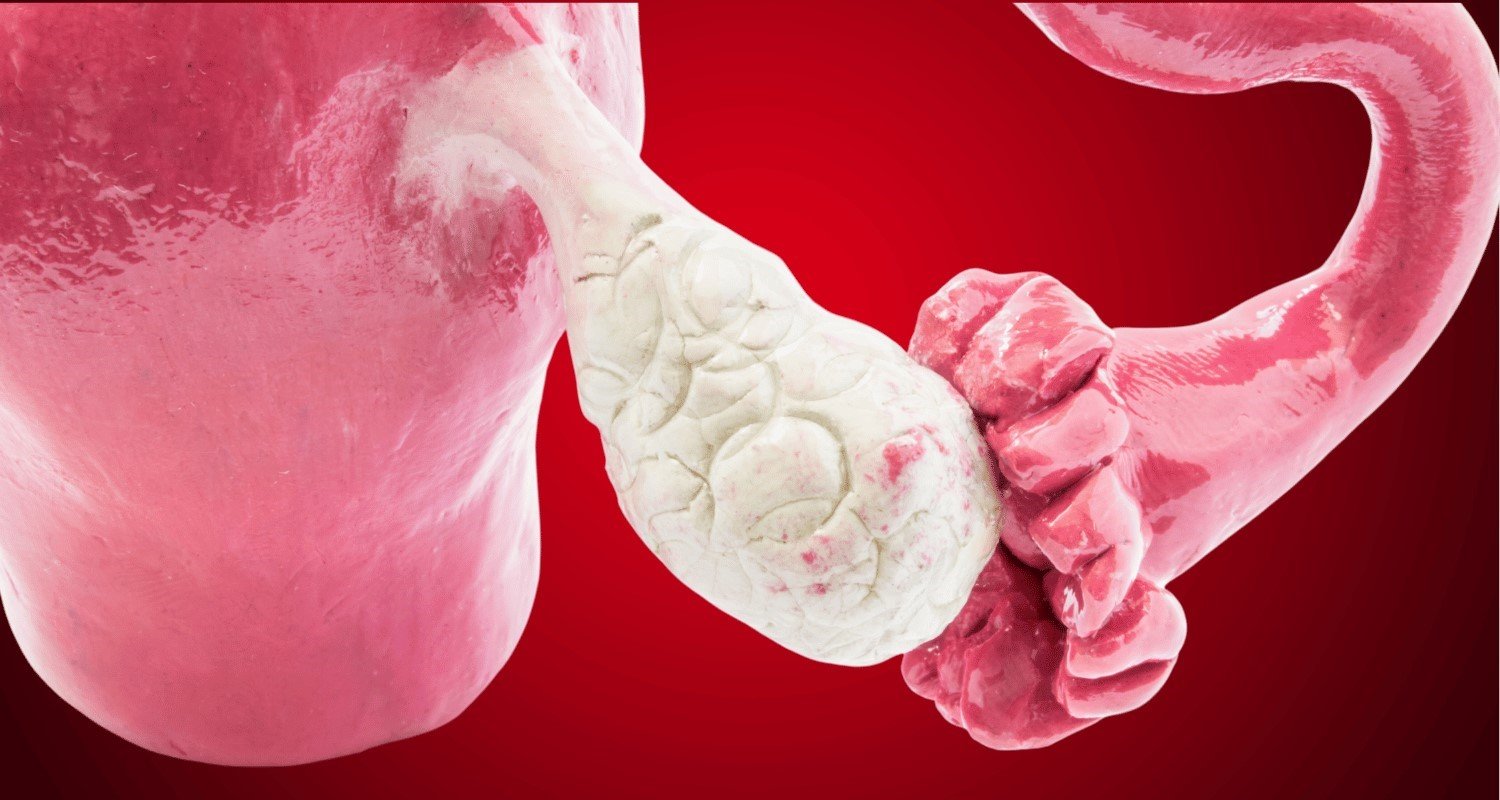PCOS can make weight loss a challenging journey, but with the right approach and determination....
Read morePublished - Sep 28, 2023 | Last Updated: 01 Oct, 2023
Published by: Dr. Shabnam Sharjil

Polycystic Ovary Disorder (PCOD) and Polycystic Ovary Syndrome (PCOS) are two conditions that have been a topic of concern and confusion for women worldwide. This article aims to shed light on what is PCOD, what is PCOS, and the difference between PCOS and PCOD. We will also delve intoPCOD symptoms in Hindi and PCOD problem solutions.

Polycystic Ovary Disorder, commonly known as PCOD, is a hormonal imbalance affecting women of reproductive age. The PCOD full form in medical terms stands for "Polycystic Ovary Disorder". In PCOD, the ovaries produce higher amounts of androgen, leading to hormone imbalance, irregular menstrual periods, and other symptoms.
Polycystic Ovary Disorder, commonly known as PCOD, is a hormonal imbalance that predominantly affects women of reproductive age. This condition is often confused with Polycystic Ovary Syndrome (PCOS), but they are similar in terms of symptoms and treatment. Understanding what is PCOD is crucial for proper diagnosis and treatment.

The PCOD full form in medical terminology stands for Polycystic Ovary Disorder. This is different from PCOS, whose full form is Polycystic Ovary Syndrome. Knowing the PCOD full form and PCOD full form can help in understanding the between PCOS and PCOD.
In PCOD, the ovaries produce higher amounts of androgen, a type of hormone usually associated with male traits. This elevated androgen level leads to a hormone imbalance, which is a key factor in PCOD symptoms. Understanding this hormonal imbalance is crucial for PCOD treatment and PCOD problem solutions.
What is PCOD problem in females often manifests through a range of symptoms, including irregular menstrual periods, weight gain, and excess hair growth. These are the first signs of PCOS and PCOD, and they often prompt women to seek medical advice. In Hindi, these symptoms are referred to as PCOD ke lakshan.
One of the treatment options for managing PCOD symptoms is focusing on PCOD weight loss. Weight management can help in controlling the hormonal imbalance, thus offering a way on how to control PCOD and how to cure PCOD.

In Hindi, PCOD is often discussed using terms like PCOD kya hota hai, PCOD kya hai, and PCOD ka kya matlab hota hai. Understanding PCOD in Hindi can help in creating awareness and offering PCOD problem treatment in Hindi.
Another aspect that is often discussed is PCOD problem after marriage. This is because PCOD can lead to fertility issues, making it a significant PCOD problem in females who are planning to start a family.
Polycystic Ovary Syndrome, or PCOS, is a metabolic disorder that also affects hormone levels but has broader health implications, including risks of Type 2 Diabetes and Heart Disease. The PCOS and PCOD full form in medical terminology are Polycystic Ovary Syndrome and Polycystic Ovary Disorder, respectively.
While both conditions are related to a hormone imbalance, they differ in their impact and treatment. PCOD is primarily a hormonal imbalance, whereas PCOS affects the entire metabolic system, leading to more severe health risks like high blood pressure and endometrial cancer.
Common symptoms include irregular periods, excess hair growth, and weight gain. In Hindi, PCOD ke lakshan include irregular menstrual cycle and weight gain. Symptoms of PCOD problem in females can be similar to those of PCOS, making it essential to consult a PCOS specialist for a proper diagnosis.
One of the most common PCOD problem symptoms is irregular periods. Women with PCOD often experience longer menstrual cycles, missed periods, or very heavy menstrual flow. This irregularity in the menstrual cycle is often one of the first symptoms of PCOD problem in females that triggers a visit to a healthcare provider.

In Hindi, this symptom is often referred to as PCOD ke lakshan involving irregular menstrual cycles.
Another common PCOD symptom is excess hair growth, medically known as hirsutism. This occurs due to an imbalance in hormones, specifically an increase in androgens.

Excess hair growth can appear on the face, chest, and back. This is one of the PCOD problem symptoms in Hindi known as "adhik baal vriddhi" and is a significant PCOD sign that should not be ignored.
Weight gain is another symptom commonly associated with PCOD. While weight gain can be influenced by various factors, an unexplained increase in weight could be one of the symptoms of PCOD problem in females. In Hindi, this is often described as PCOD ke lakshan involving weight gain. It's crucial to consult a healthcare provider for a proper diagnosis, as weight gain can also be a symptom of other health issues.
Oily skin are often overlooked as PCOD symptoms, but they can be a significant indicator of hormonal imbalance. These skin issues are not just cosmetic concerns; they are symptoms of PCOD problem in females that warrant medical attention. In Hindi, this is referred to as PCOD ke lakshan involving skin problems.
Hair thinning or hair loss is another symptom that could indicate PCOD. This is one of the PCOD problem symptoms that is less commonly discussed but can have a significant impact on a woman's self-esteem. In Hindi, this symptom is often included in the list of PCOD problem symptoms in Hindi as "baal patli hona."
Mood swings and depression are also symptoms of PCOD that are often overlooked. The hormonal imbalance that accompanies PCOD can have a significant impact on emotional well-being.

These are crucial PCOD signs that should not be ignored. In Hindi, emotional symptoms are sometimes included in discussions about PCOD ke lakshan.
Infertility can be one of the most distressing symptoms of PCOD problem in females. Women with PCOD may experience difficulty in conceiving due to irregular ovulation.

This is a serious PCOD problem symptom that requires immediate medical attention. In Hindi, infertility as a symptom is often discussed under the term PCOD problem symptoms in Hindi as "banjhpan."
Severe menstrual cramps can also be a symptom of PCOD.

While many women experience some level of discomfort during their menstrual cycle, excessive pain can be a PCOD symptom that requires further investigation. In Hindi, this is often referred to as PCOD ke lakshan involving "dard bhare masik dharm."
In Hindi, PCOD symptoms are often described using terms like PCOD ke lakshan and PCOD problem symptoms in Hindi. These terms help in creating awareness about PCOD in communities where English is not the first language. Understanding PCOD problem symptoms in Hindi can be crucial for early diagnosis and treatment.
Given that PCOD problem symptoms can be similar to those of Polycystic Ovary Syndrome (PCOS), it's essential to consult a specialist for a proper diagnosis. In Hindi, the need for proper diagnosis is often emphasized as PCOD problem symptoms in Hindi can be similar to other health issues as well.
Diagnosis often involves blood tests to measure androgen levels, insulin levels, and other hormones. Menstrual cycle tracking and ultrasound may also be used.
Treatment often involves birth control pills to regulate menstrual periods and hormone levels. PCOD weight loss plans and medications for insulin resistance are also common.
Both conditions can lead to long-term health risks if not managed properly, including type 2 diabetes, high blood pressure, and heart disease.
One of the most concerning long-term health risks associated with PCOD is the increased likelihood of developing type 2 diabetes. This is particularly alarming because PCOD problem in females often starts at a young age, making the risk of diabetes a long-term concern. The hormonal imbalances that characterize PCOD can lead to insulin resistance, a precursor to type 2 diabetes. Therefore, managing PCOD problems effectively is crucial to mitigate this risk.
High blood pressure is another long-term health risk that can arise from unmanaged PCOD problems. The hormonal imbalances in PCOD can lead to weight gain, which in turn can elevate blood pressure levels. High blood pressure is often referred to as the "silent killer" because it can lead to various cardiovascular issues if not addressed. This makes it a significant PCOD problem in females that requires ongoing management.
Heart disease is a severe long-term health risk associated with PCOD. The hormonal imbalances that are part and parcel of PCOD problems can lead to a range of cardiovascular issues, including heart disease. Women with PCOD are at a higher risk of developing heart disease due to factors like insulin resistance, high blood pressure, and elevated cholesterol levels. Therefore, it's crucial to manage PCOD problems effectively to reduce the risk of heart disease.
Given these long-term health risks, it becomes imperative to manage PCOD problems effectively. Regular medical check-ups, lifestyle changes, and medication are essential in managing PCOD problem in females and reducing the risk of type 2 diabetes, high blood pressure, and heart disease.
Understanding what is PCOD problem in females and what is PCOS is crucial for proper diagnosis and treatment. While they may seem similar, they have different implications and require different treatment approaches.

PCOS can make weight loss a challenging journey, but with the right approach and determination....
Read moreLooking for an effective PCOS Diet Chart? Discover a tailored PCOS diet plan to support your well-being.
Read moreThe Digital Revolution in PCOS, PCOD, and Infertility Online Consultation (Telemedicine)....
Read moreDiscover the Best PCOS Treatment in Delhi: Top-rated PCOS clinics in Delhi like PCOS Ferticure....
Read moreLooking for a guide on managing PCOS irregular periods? Explore effective strategies to regulate your menstrual cycle with our PCOS irregular periods guide.
Read moreDr. Shabnam Sharjil offers best PCOS treatment in Delhi, along with Online Polycystic Ovary Syndrome (PCOS PCOD) Video consultation....
Read moreThere are several treatment options available for PCOS, depending on the individual's specific....
Read moreThe symptoms of PCOS/PCOD can vary from woman to woman, but some common indicators include irregular periods....
Read moreUnlock remarkable success in treating PCOD and PCOS with Ferticure, the leading destination for PCOD-PCOS....
Read moreDr. SHABNAM SHARJIL is the Best Polycystic Ovary Syndrome (PCOS) Treatment Doctor in India for....
Read moreUnderstand the causes of irregular periods, from hormonal imbalances to conditions like PCOS, and....
Read moreWelcome to our comprehensive Frequently Asked Questions (FAQ) section, dedicated to providing....
Read morePlease click the link below to get location of the PCOS Ferticure Clinic....
Read morePlease click the link below to get location of the PCOS Ferticure Clinic....
Read moreEmpowering Lives: Discover a supportive community and expert insights to navigate....
Read moreFlaxseed offers a potent source of Omega-3s, essential for rectifying the hormonal disparities....
Read moreUnderstanding PCOS Mood Swings: Learn about the emotional challenges faced by individuals with PCOS and....
Read moreIn the realm of Obstetrics and Gynaecology, Dr. Shabnam stands out as a beacon of hope for women struggling....
Read morePelvic Inflammatory Disease primarily targets a woman's reproductive system and often originates....
Read moreUnderstand the causes of irregular periods, from hormonal imbalances to conditions like PCOS, and....
Read moreOnline PCOD PCOS Video Consultation: Elevate your PCOS fertility journey with Dr. SHABNAM....
Read morePCOD arises from a blend of hormonal imbalances and genetic factors, manifesting in a variety of....
Read moreEndometriosis is a chronic condition where tissue resembling the uterine lining grows outside the....
Read moreExtensive research has indicated that women with PCOS may face an elevated risk of experiencing....
Read moreDr. SHABNAM SHARJIL is the Best Polycystic Ovary Syndrome (PCOS) Treatment Doctor in India for....
Read moreDr. SHABNAM SHARJIL is a leading expert in PCOS and PCOD treatment, offering comprehensive PCOS....
Read more